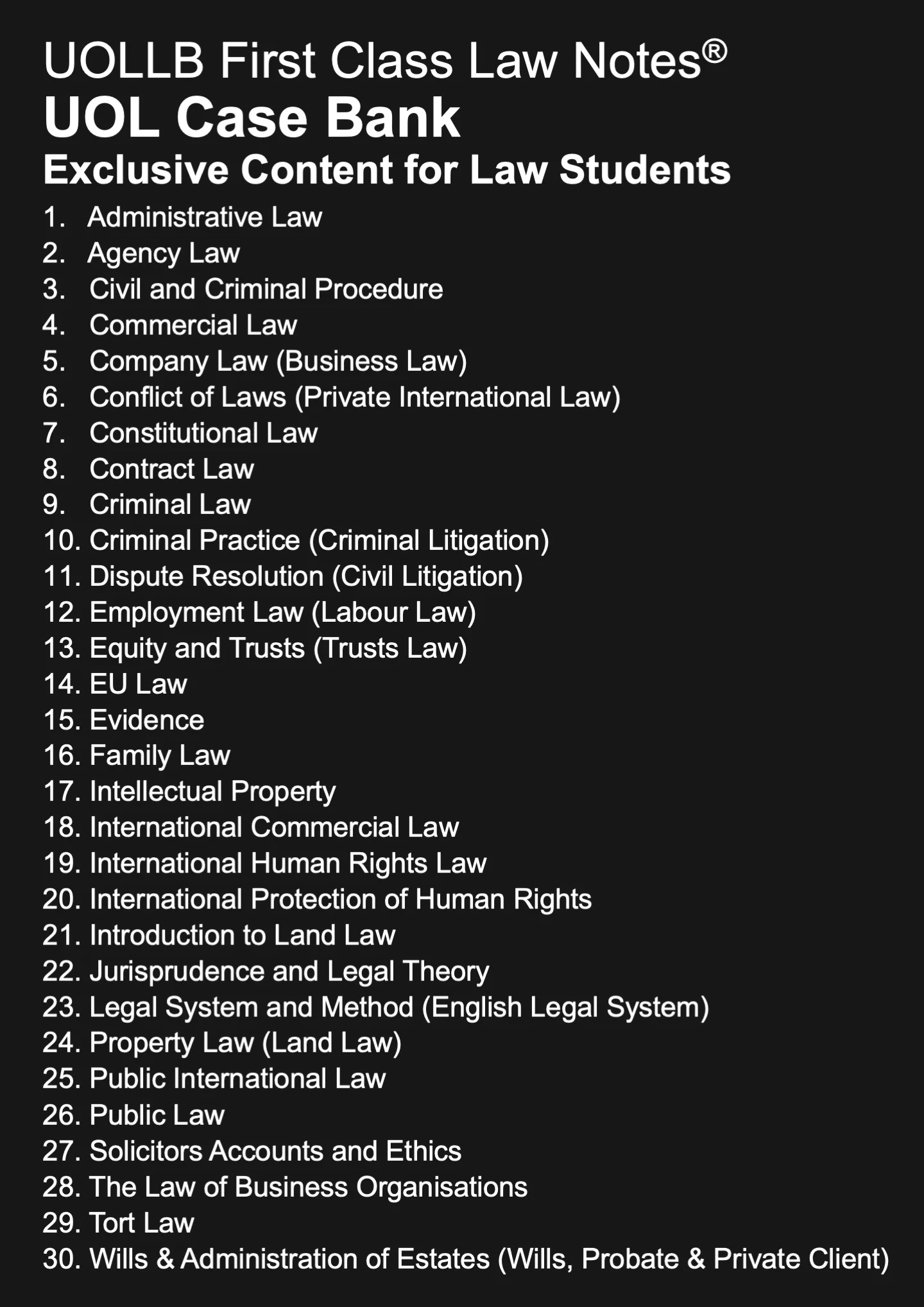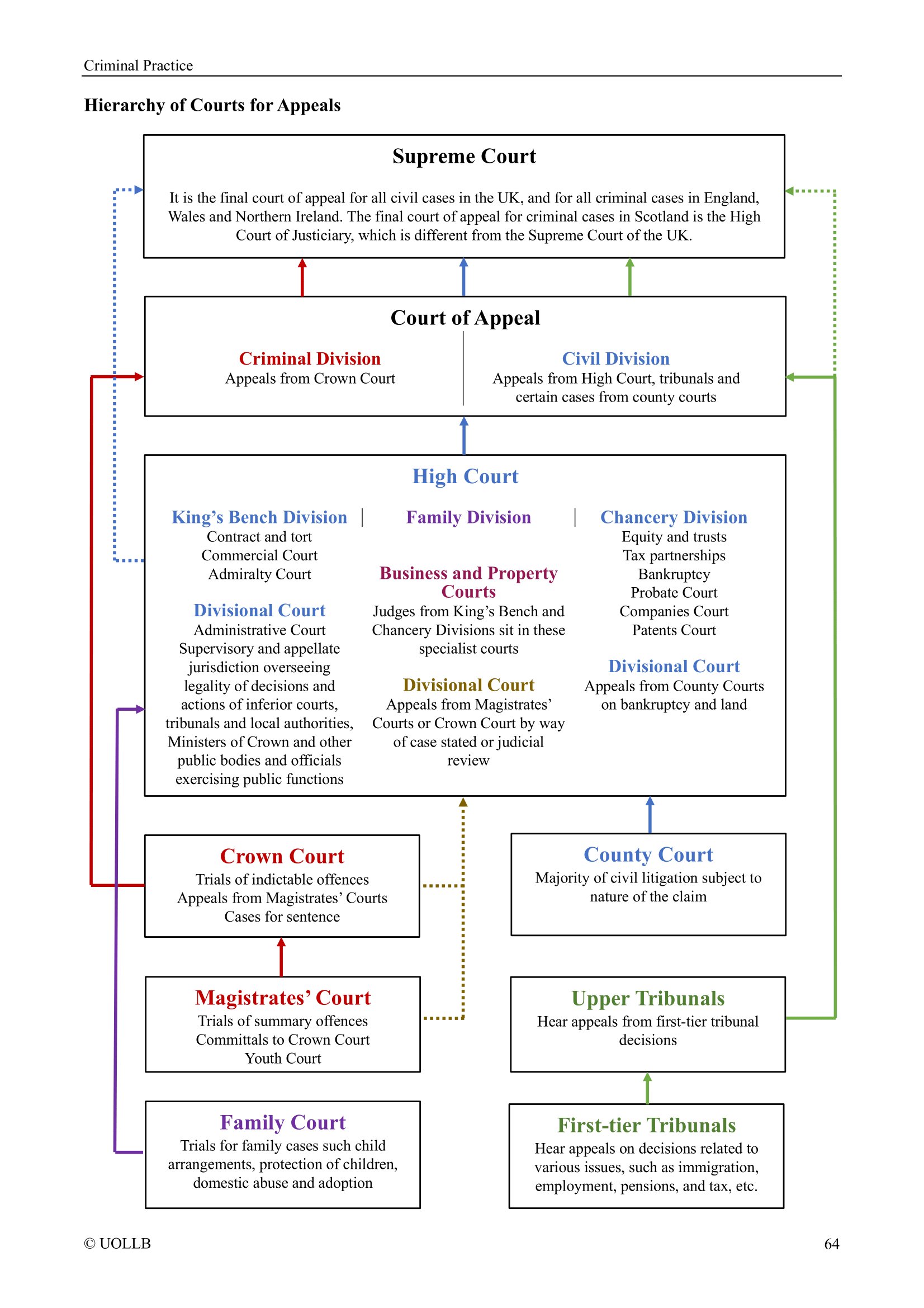UOL Tort Law
Share
Tort Law is a comprehensive exploration of the principles governing civil wrongs in the British legal system. This course seeks to equip students with a detailed understanding of tortious liability, its various forms, and the legal mechanisms involved in seeking redress for harm caused by wrongful acts. From foundational concepts such as negligence and duty of care to emerging areas like breach of privacy and defamation, students will engage with the complexities of tort law.
1. Introduction
The introductory module serves as a gateway to the study of tort law. Students explore the historical development, theoretical foundations, and overarching objectives of tort law, understanding its role in providing remedies for civil wrongs and compensating victims.
2. Types of Tort
This section provides a taxonomy of torts, categorising them into distinct types. Students explore the broad classifications, including negligence, strict liability, intentional torts, economic torts, and emerging areas like privacy and defamation.
3. Negligence
Negligence is a foundational and extensively explored topic in tort law. Students delve into the elements of negligence, understanding the duty of care, breach of duty, causation, and the principles of foreseeability that underpin this tort.
4. Duty of Care
Duty of care is a central concept in tort law. This module examines the legal criteria for establishing a duty of care, considering relationships, foreseeability, and policy considerations that influence the imposition of such duties.
5. Breach of Duty
Breach of duty occurs when a party fails to meet the required standard of care. Students analyse the factors influencing breach, considering the reasonable person standard, professional standards, and the role of expert testimony.
6. Causation
Causation is a pivotal element in establishing negligence. This module explores the concepts of factual and legal causation, examining the "but-for" test, foreseeability, and the complexities of causation in complex scenarios.
7. Remoteness
Remoteness addresses the scope of liability for damages in negligence cases. Students explore the foreseeability of harm and the legal principles guiding the assessment of damages, ensuring a reasonable connection between the breach and the harm.
8. Proximate Cause
Proximate cause delves into the legal limitations on the scope of liability. Students analyse the concept of legal causation and its application in determining the boundaries of responsibility, ensuring a close connection between the breach and the harm.
9. Intervening Cause
Intervening causes may impact the chain of causation in tort cases. This section explores how the law addresses intervening acts and their impact on liability for negligence, including concepts of novus actus interveniens.
10. Strict Liability
Strict liability imposes liability without the need to prove fault. Students examine the principles and justifications for strict liability, particularly in the context of certain activities or inherently dangerous situations.
11. Product Liability
Product liability addresses harm caused by defective products. This module explores the legal principles governing the liability of manufacturers, distributors, and sellers for faulty products, emphasising consumer protection.
12. Public Liability
Public liability extends to harm suffered in public spaces. Students examine the duty of care owed to the public, the challenges of foreseeability, and the legal considerations in public liability cases involving public spaces or infrastructure.
13. Vicarious Liability
Vicarious liability holds one party responsible for the actions of another. This section explores the principles governing employer liability for the wrongful acts of employees, considering the scope of employment and policy considerations.
14. Pure Economic Loss
Pure economic loss involves financial harm without physical injury. Students explore the limitations and challenges associated with claims for pure economic loss in tort law, considering the economic loss rule and its exceptions.
15. Pure Psychiatric Harm
This module delves into claims for pure psychiatric harm, exploring the criteria for establishing liability and the legal considerations in cases involving emotional distress without physical injury.
16. Employers’ Liability
Employers' liability addresses harm suffered by employees. Students examine the duty of care owed by employers, workplace safety regulations, and the legal mechanisms for compensating injured workers.
17. Occupiers’ Liability
Occupiers' liability pertains to harm suffered on another's premises. This section explores the duty of care owed by occupiers to visitors, the legal considerations in premises liability cases, and the balancing of interests.
18. Intentional Torts
Intentional torts involve deliberate harmful acts. Students examine various intentional torts, including battery, trespass, and false imprisonment, exploring the elements, defences, and remedies.
19. Economic Torts
Economic torts address wrongs affecting economic interests. This module explores torts such as deceit, conspiracy, and inducing breach of contract, focusing on their legal implications in commercial contexts.
20. Nuisance
Nuisance involves interference with another's enjoyment of property. Students explore private and public nuisance, the balancing of interests, and the legal considerations in nuisance claims, including the assessment of reasonable use.
21. Breach of Privacy
The emerging field of privacy law is explored in this module. Students examine the legal principles governing the protection of privacy, including the impact of technology, media, and the evolving concept of a "right to be forgotten".
22. Defamation
Defamation concerns false statements that harm reputation. This section explores the elements of defamation, defences such as truth and qualified privilege, and the legal considerations in balancing freedom of expression with the protection of reputation.
By examining topics ranging from negligence and strict liability to emerging areas like privacy and defamation, students develop the analytical and critical thinking skills necessary for engaging with the nuanced issues within this branch of law. This course not only equips students with the foundational knowledge required for legal practice but also encourages them to consider the broader societal implications of tort law.
1. Introduction
The introductory module serves as a gateway to the study of tort law. Students explore the historical development, theoretical foundations, and overarching objectives of tort law, understanding its role in providing remedies for civil wrongs and compensating victims.
2. Types of Tort
This section provides a taxonomy of torts, categorising them into distinct types. Students explore the broad classifications, including negligence, strict liability, intentional torts, economic torts, and emerging areas like privacy and defamation.
3. Negligence
Negligence is a foundational and extensively explored topic in tort law. Students delve into the elements of negligence, understanding the duty of care, breach of duty, causation, and the principles of foreseeability that underpin this tort.
4. Duty of Care
Duty of care is a central concept in tort law. This module examines the legal criteria for establishing a duty of care, considering relationships, foreseeability, and policy considerations that influence the imposition of such duties.
5. Breach of Duty
Breach of duty occurs when a party fails to meet the required standard of care. Students analyse the factors influencing breach, considering the reasonable person standard, professional standards, and the role of expert testimony.
6. Causation
Causation is a pivotal element in establishing negligence. This module explores the concepts of factual and legal causation, examining the "but-for" test, foreseeability, and the complexities of causation in complex scenarios.
7. Remoteness
Remoteness addresses the scope of liability for damages in negligence cases. Students explore the foreseeability of harm and the legal principles guiding the assessment of damages, ensuring a reasonable connection between the breach and the harm.
8. Proximate Cause
Proximate cause delves into the legal limitations on the scope of liability. Students analyse the concept of legal causation and its application in determining the boundaries of responsibility, ensuring a close connection between the breach and the harm.
9. Intervening Cause
Intervening causes may impact the chain of causation in tort cases. This section explores how the law addresses intervening acts and their impact on liability for negligence, including concepts of novus actus interveniens.
10. Strict Liability
Strict liability imposes liability without the need to prove fault. Students examine the principles and justifications for strict liability, particularly in the context of certain activities or inherently dangerous situations.
11. Product Liability
Product liability addresses harm caused by defective products. This module explores the legal principles governing the liability of manufacturers, distributors, and sellers for faulty products, emphasising consumer protection.
12. Public Liability
Public liability extends to harm suffered in public spaces. Students examine the duty of care owed to the public, the challenges of foreseeability, and the legal considerations in public liability cases involving public spaces or infrastructure.
13. Vicarious Liability
Vicarious liability holds one party responsible for the actions of another. This section explores the principles governing employer liability for the wrongful acts of employees, considering the scope of employment and policy considerations.
14. Pure Economic Loss
Pure economic loss involves financial harm without physical injury. Students explore the limitations and challenges associated with claims for pure economic loss in tort law, considering the economic loss rule and its exceptions.
15. Pure Psychiatric Harm
This module delves into claims for pure psychiatric harm, exploring the criteria for establishing liability and the legal considerations in cases involving emotional distress without physical injury.
16. Employers’ Liability
Employers' liability addresses harm suffered by employees. Students examine the duty of care owed by employers, workplace safety regulations, and the legal mechanisms for compensating injured workers.
17. Occupiers’ Liability
Occupiers' liability pertains to harm suffered on another's premises. This section explores the duty of care owed by occupiers to visitors, the legal considerations in premises liability cases, and the balancing of interests.
18. Intentional Torts
Intentional torts involve deliberate harmful acts. Students examine various intentional torts, including battery, trespass, and false imprisonment, exploring the elements, defences, and remedies.
19. Economic Torts
Economic torts address wrongs affecting economic interests. This module explores torts such as deceit, conspiracy, and inducing breach of contract, focusing on their legal implications in commercial contexts.
20. Nuisance
Nuisance involves interference with another's enjoyment of property. Students explore private and public nuisance, the balancing of interests, and the legal considerations in nuisance claims, including the assessment of reasonable use.
21. Breach of Privacy
The emerging field of privacy law is explored in this module. Students examine the legal principles governing the protection of privacy, including the impact of technology, media, and the evolving concept of a "right to be forgotten".
22. Defamation
Defamation concerns false statements that harm reputation. This section explores the elements of defamation, defences such as truth and qualified privilege, and the legal considerations in balancing freedom of expression with the protection of reputation.
By examining topics ranging from negligence and strict liability to emerging areas like privacy and defamation, students develop the analytical and critical thinking skills necessary for engaging with the nuanced issues within this branch of law. This course not only equips students with the foundational knowledge required for legal practice but also encourages them to consider the broader societal implications of tort law.























































